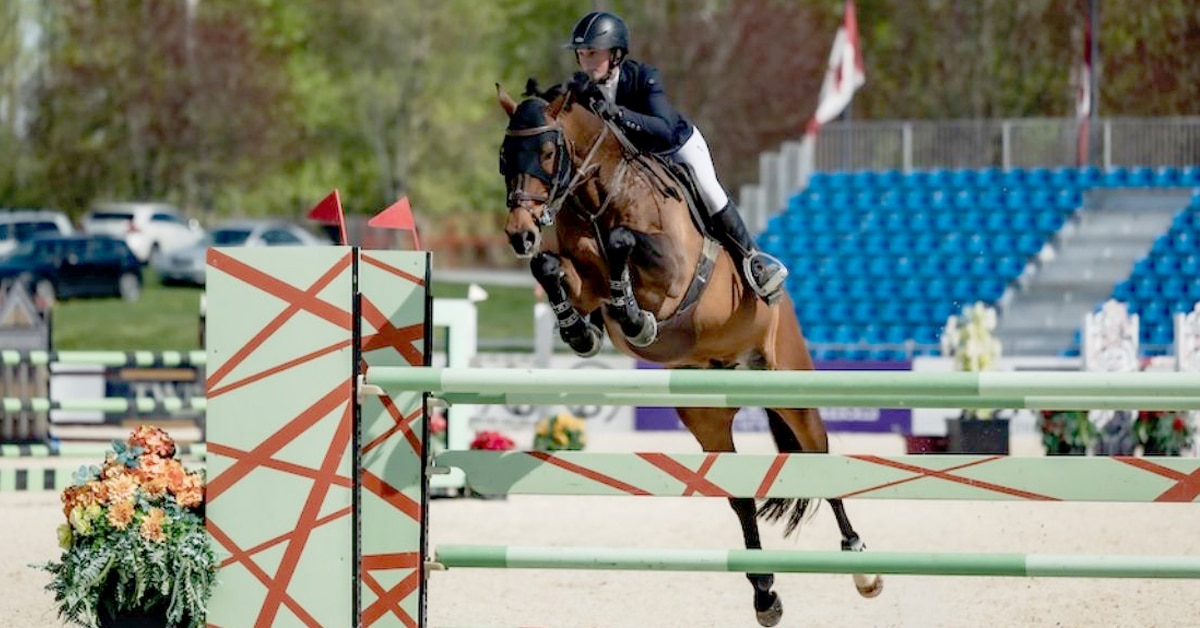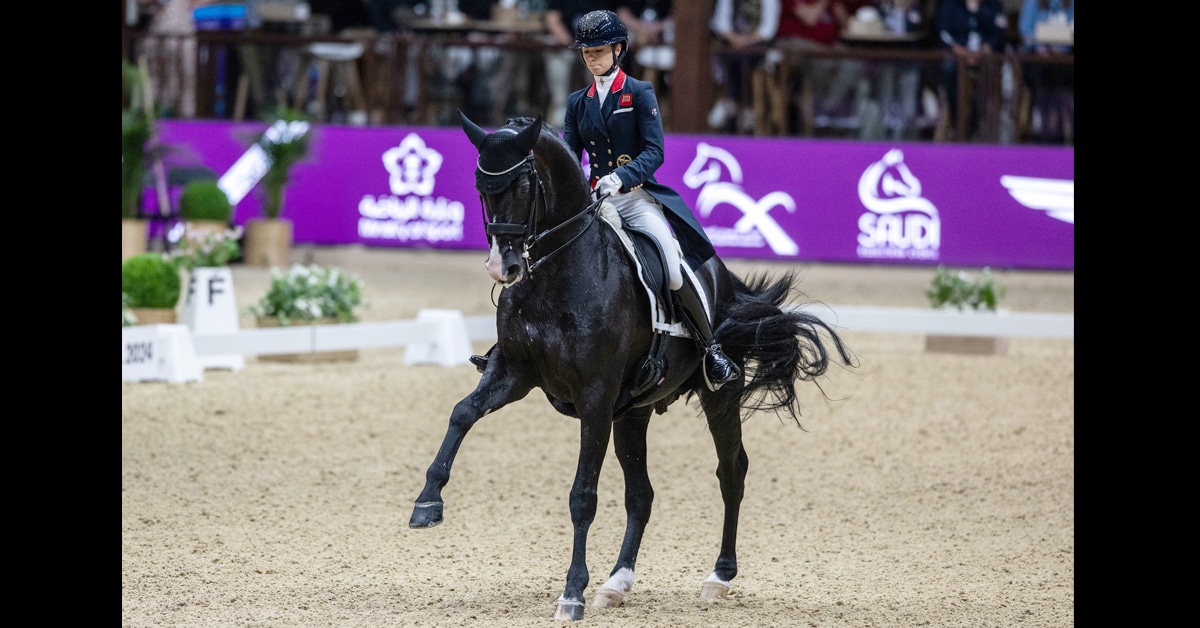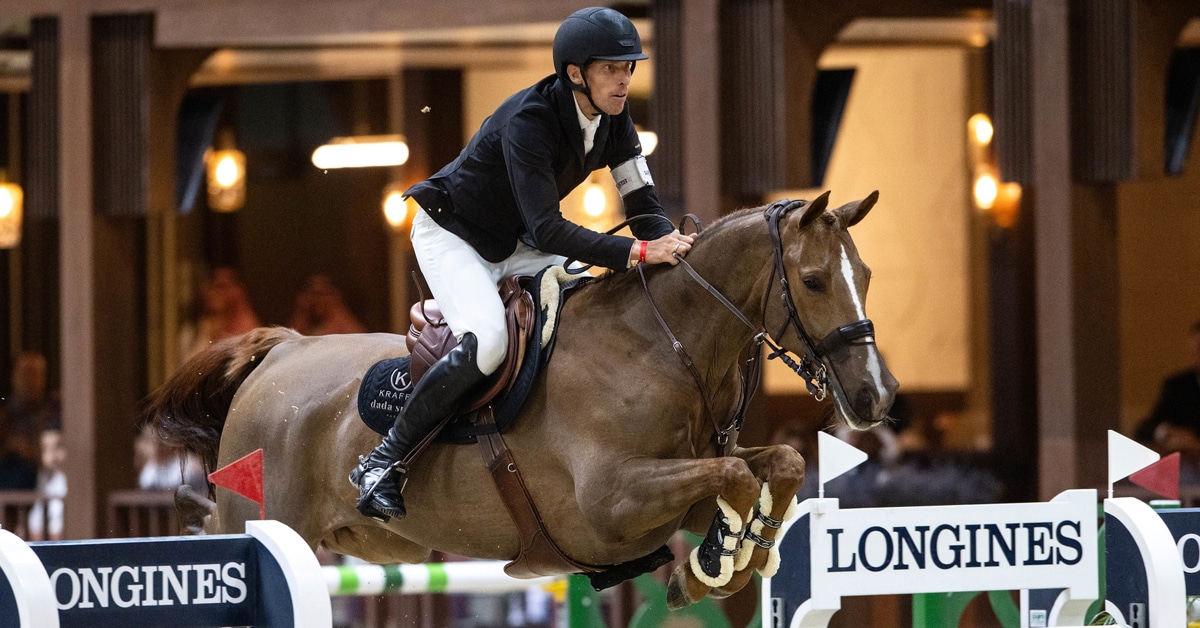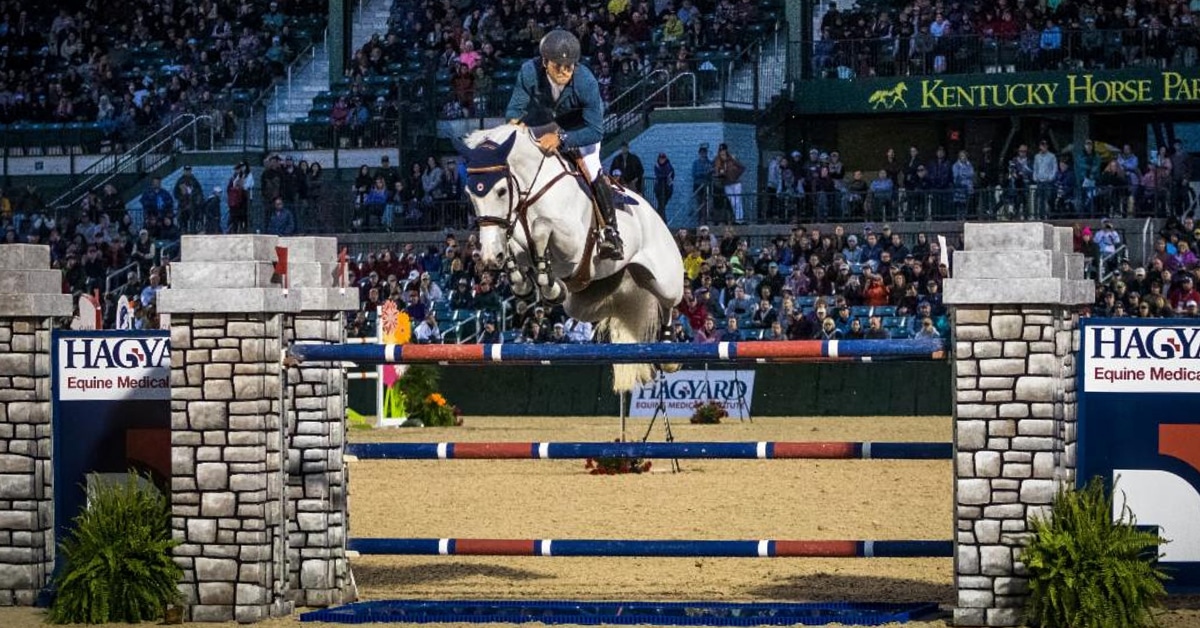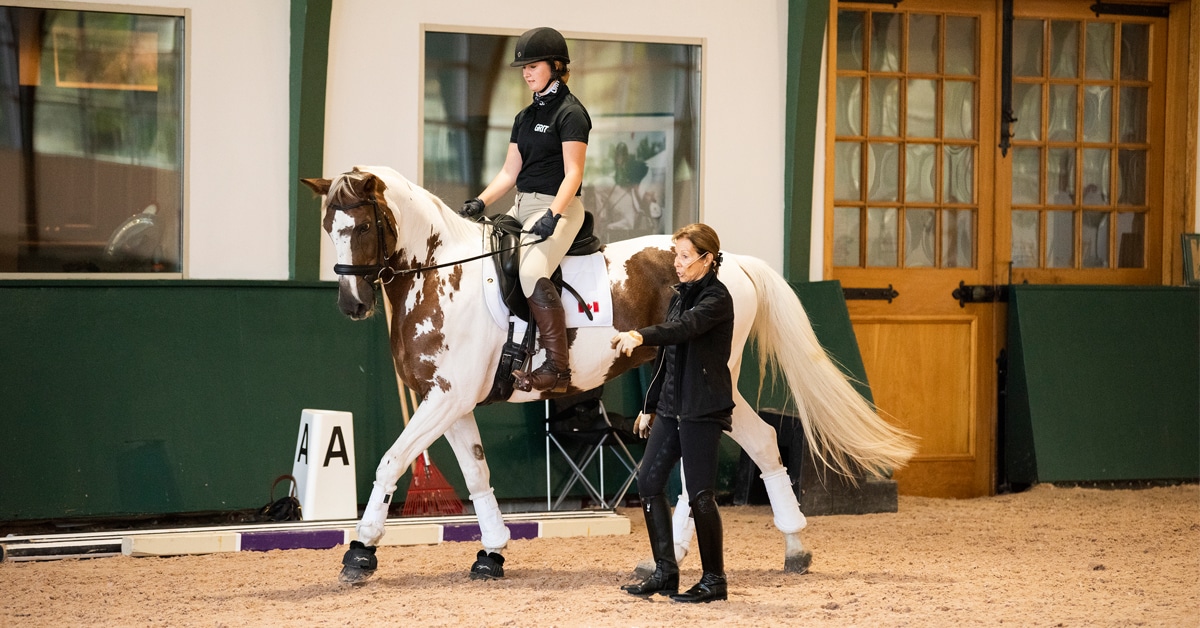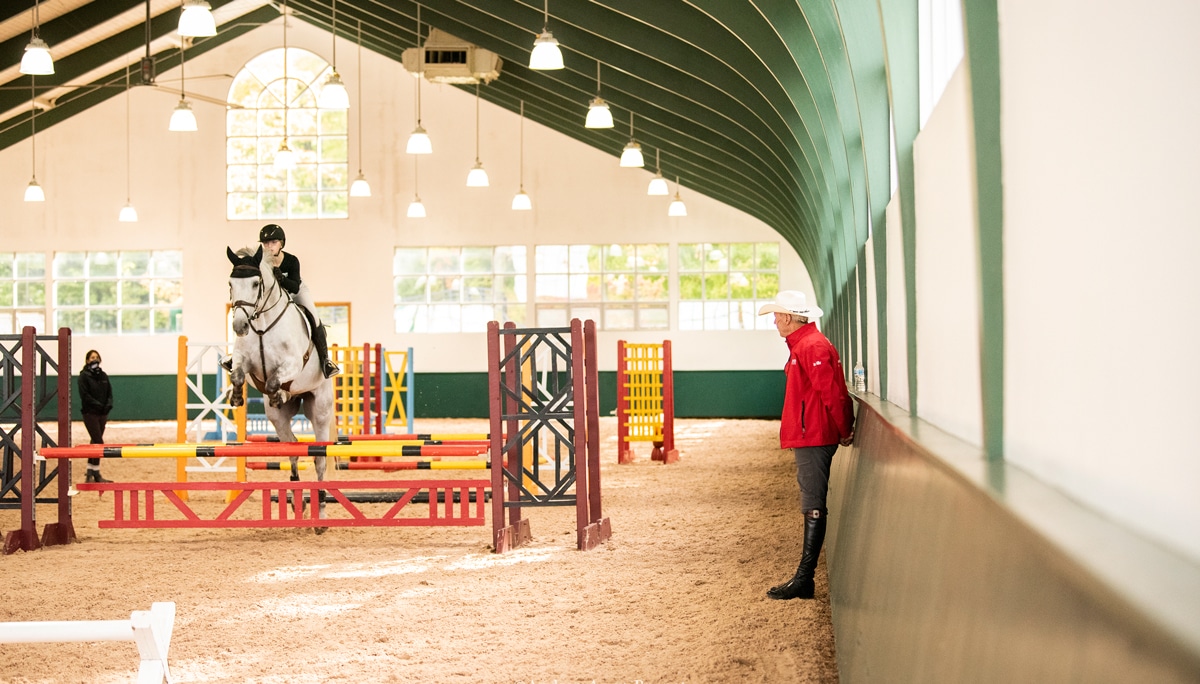The team of riders that were selected to be part of the inaugural Great Rider Intensive Training (GRIT) program gathered at Adena Springs in Aurora, Ontario for their second group training camp. Held over two days, the 19 riders were immersed in an in-depth series of training sessions and lectures meant to further their understanding of the sport and hone their athletic skills.
Spearheaded by Ontario Equestrian, the program targets podium bound athletes with successful competition experience, whose goal is to be part of the National Team. Athletes submitted applications to participate in the program that features head coach Christilot Boylen and Ian Millar as a consultant to the program.
“We have to be able to show the up-and-coming riders and up-and-coming coaches what the level is,” explained Boylen on the value of the GRIT program. “They have to have access to advice.”
The two days included training sessions with both Boylen and Millar. Ian also spent an hour with each group talking about the evolution of equestrian and answering questions. There were sessions with a sport psychologist and the team strength and conditioning coach. Over the summer, the GRIT riders also had access to a series of free webinars on a range of topics including sponsorship, Injury Prevention, Equine Supplements, biomechanics, and more. Riders also participated in weekly Zoom sessions on strength and conditioning programs that were specifically designed for the team.
“It’s not the strongest or smartest of the species that will survive, it is the one that is willing to change,” added Millar on the need for this program in equestrian sport. “There is too much diverse methodology out there in training and teaching. We need consistency so that we are teaching the same basics to the bottom of the pyramid.”
Though the program was met with some resistance at the outset for not including more coaches, “that is a mentality that we have to get over,” commented Boylen.
“I think it has potential,” commented Hugh Graham, whose student Reese Tobin was a participant. “I’d like the coaches and trainers to be more involved so they could help build enthusiasm for the program. The key is to get the coaches and get them in on the team.”
Tracey McCague-McElrea, the Executive Director of Ontario Equestrian, does have bigger plans for the program.
“Eventually, I want there to be parent sessions. I want there to be specific and very concentrated work with coaches and work with the athletes,” she said. “But we are just getting our feet wet right now.”
Whether the program will encourage more riders to progress up the ranks is unclear, but providing talented and driven athletes access to these valuable resources benefits more than just the riders.
“The magic in these camps is that they are also coaching coaches to coach,” said McCague-McElrea. “All these coaches listening to these two for two days are going to go back home and they probably have a team of 15 or 20 kids they coach at their barn. So now they’ve got this expertise and they are going to be helping a wider range of students.
“We are 20 years behind most other sport in terms of how we are grooming athletes to progress to national, and grooming coaches to move kids to national. It’s hit and miss in equestrian. It’s the right parents, the right money, the right coach, the right horse. If we get two or three or four kids coming out of this program moving towards the national program team we are doing an amazing job.”
Zara Buren Honoured
Riders at the camp honoured fellow GRIT team member Zara Buren who passed away last week. Sporting Buren’s burgundy riding colours on their saddle pads, riders also attended a special session with psychiatrist Dr. Carla Edwards on how to handle the tragedy. Dr. Edwards works with elite and high performance athletes from nearly every national sport organization in Canada.
More from News:
